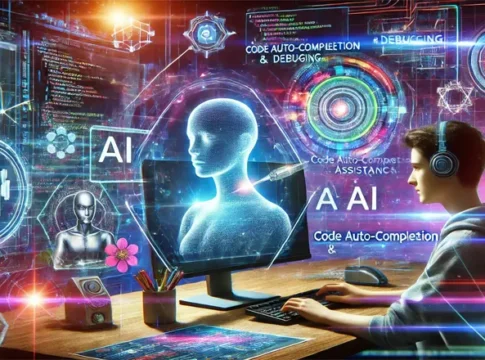In the evolving landscape of artificial intelligence (AI), the significance of coding remains paramount. Yossi Matias, Google’s Vice President and Head of Research, emphasizes that despite AI’s advancements, foundational coding skills are indispensable. He likens coding to fundamental disciplines like mathematics, asserting that a solid grasp of coding principles is crucial for leveraging AI’s potential across various sectors.
While AI tools have begun to assist in code generation, they are not poised to replace human programmers. Matias notes that AI-generated code still requires human oversight to ensure accuracy and functionality. This collaboration between AI and human expertise is essential for developing robust and reliable software solutions.
Moreover, understanding coding is vital for comprehending how AI technologies operate. This knowledge enables professionals to effectively integrate AI into their workflows, enhancing productivity and innovation. As AI continues to permeate various industries, the demand for skilled coders who can work alongside AI systems is expected to grow.
In summary, despite AI’s rapid progression, coding remains a critical skill. The synergy between human programmers and AI tools is essential for driving technological advancements and ensuring the development of effective and reliable applications.
Coding’s Enduring Relevance in the Age of AI
In a world where artificial intelligence (AI) is reshaping industries and workflows, Google’s Vice President and Research Head, Yossi Matias, has underscored a vital point: coding is not becoming obsolete. Despite AI’s impressive capabilities in generating code, it serves as a complement rather than a replacement for human programmers.
Why Coding Still Matters
- Foundation for Understanding AI: Coding is akin to mathematics—a universal language that forms the backbone of digital technology. For professionals working in AI, understanding coding is crucial to grasp how AI models function, debug them, and deploy them effectively.
- AI as a Tool, Not a Replacement: While AI systems like ChatGPT can write or optimize code, their outputs still require human intervention to validate logic, structure, and performance. This ensures that AI-generated solutions align with project goals and industry standards.
- Creative Problem-Solving: Coding involves creativity, critical thinking, and contextual understanding—skills that AI has yet to fully emulate. Programmers can conceptualize and build systems tailored to unique challenges, something AI cannot achieve without clear human direction.
AI’s Role in Coding
- Accelerating Development: Tools like GitHub Copilot and Google’s Codey assist coders by auto-completing code, suggesting snippets, and debugging. This reduces repetitive tasks and allows developers to focus on higher-level design and problem-solving.
- A Learning Aid: For beginners, AI serves as an effective tutor, offering instant feedback and examples. This democratizes access to coding education, enabling more people to enter the tech field.
Coding in Future Industries
- AI Integration: Industries such as healthcare, finance, and education are increasingly relying on AI solutions. Coding skills enable professionals to integrate AI tools into these sectors, ensuring customized, ethical, and efficient applications.
- Expanding Job Roles: Contrary to fears of AI taking over jobs, coding expertise will be a prerequisite for many emerging roles in AI ethics, system design, and data management.
Bridging the Gap Between AI and Humans
Yossi Matias highlighted that while AI augments human capability, the human touch remains irreplaceable. Whether it’s understanding user needs, navigating complex systems, or addressing unexpected scenarios, human programmers bring intuition and experience to the table. AI complements this by handling routine tasks and offering insights, fostering a collaborative dynamic.
The Educational Perspective
To prepare the next generation for a tech-driven world, coding education needs to be prioritized:
- Early Exposure: Introducing coding in schools alongside traditional STEM subjects ensures foundational knowledge.
- Emphasis on Logic and Creativity: Coding teaches logical thinking, which is applicable beyond the tech domain, fostering problem-solving skills across disciplines.
- Lifelong Learning: As coding languages and tools evolve, professionals need to adapt. Lifelong learning in programming ensures that human skills stay relevant alongside advancing AI.
Conclusion
AI might be a game-changer, but it’s not a standalone solution. Coding is and will remain a cornerstone of technological innovation, providing the essential skillset to harness AI’s potential. Rather than fearing displacement, professionals should view AI as an opportunity to enhance their capabilities and contribute to a future shaped by human ingenuity and machine efficiency.

